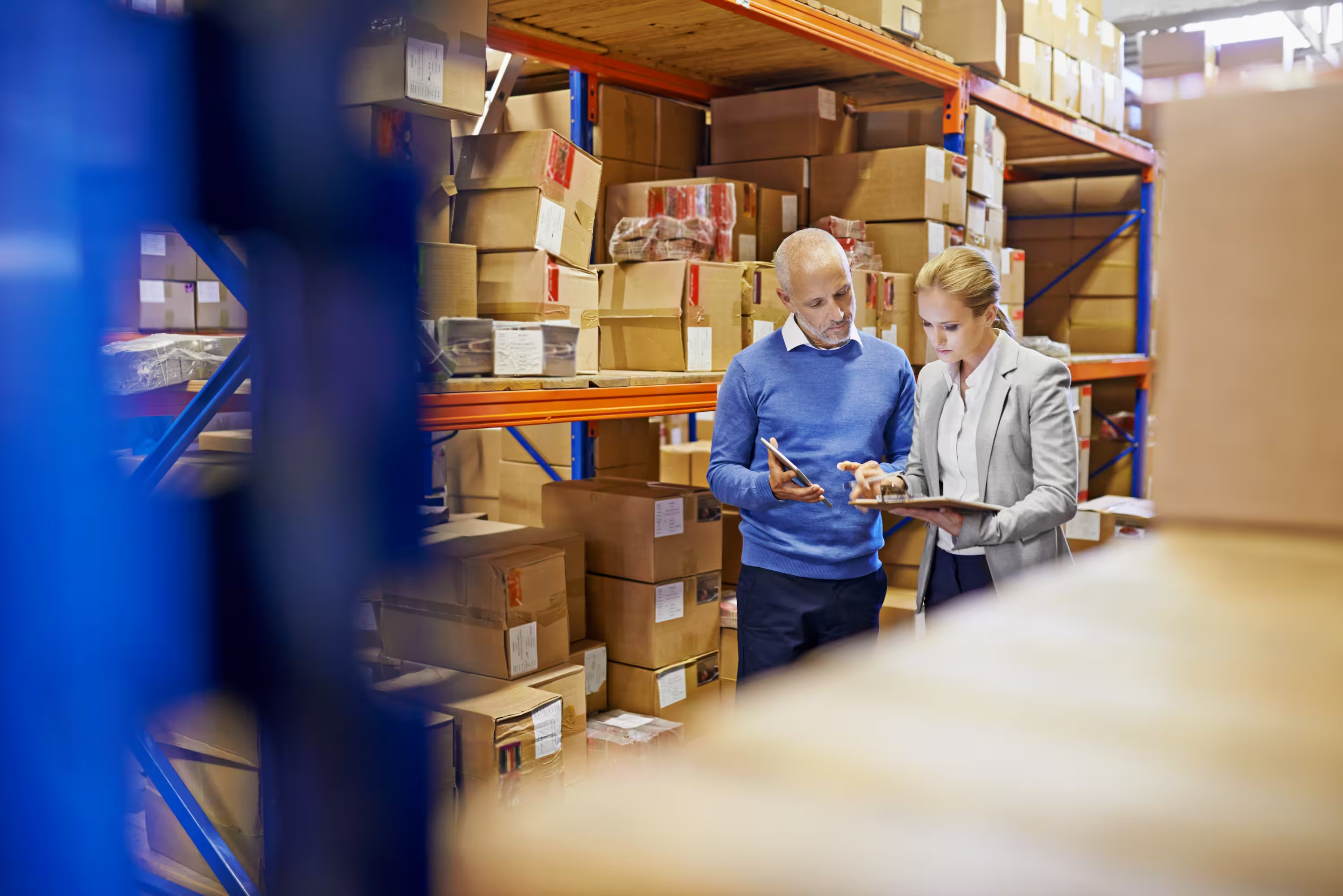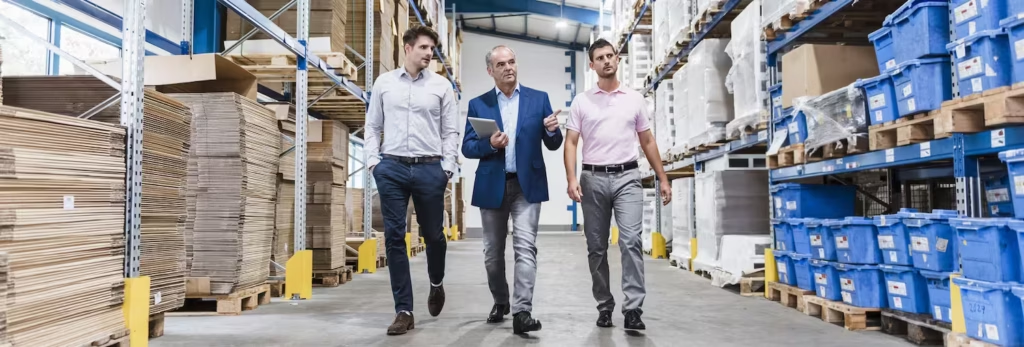Smart Traceability: Blockchain, AI and Analytics in the Supply Chain

Table of contents
Smart traceability has become a key element for organisations seeking a more transparent, connected and sustainable supply chain. In a global context defined by digitalisation, logistical disruptions and the growing pressure to meet ESG goals, traceability is no longer just a control tool, it has evolved into a strategic asset that drives operational efficiency and builds trust.
Today, technologies such as blockchain, artificial intelligence (AI) and advanced analytics are redefining how companies collect, verify and share information throughout the supply chain. This article explores how their integration enables the creation of reliable, collaborative data ecosystems, delivering a tangible competitive advantage to manufacturers, distributors and retailers.
The Evolution of Traceability: From Paper to Connected Data
For decades, traceability relied on physical documents, spreadsheets and disconnected systems. This model fulfilled a basic record-keeping function but lacked real-time visibility and hindered decision-making. Today, supply chains demand something entirely different: digital, dynamic and fully integrated traceability.
The shift from paper-based to connected data marks a paradigm change. Modern systems don’t just record; they connect processes, stakeholders and decisions across a global network. Traceability has become a source of operational intelligence and an essential pillar for sustainability, efficiency and regulatory compliance.
Limitations of Traditional Systems
Traditional systems face critical limitations in volatile environments. They often rely on fragmented data, manually updated information, or inputs from multiple unconnected sources. This leads to errors, duplication and a lack of reliability that directly impacts customer service and cost control.
Moreover, the absence of real-time visibility makes early incident detection difficult. In the event of a stockout or quality issue at origin, companies can take hours or even days to identify the cause, increasing operational and financial risk.
Why Traceability Is No Longer Just a Requirement, but a Strategic Advantage
Today, traceability goes beyond regulatory or food safety compliance, it has become a strategic resource for companies looking to stand out. A traceable supply chain allows organisations to anticipate risks, optimise inventories, reduce waste and improve sustainability.
In addition, both consumers and business partners demand transparency. Having verifiable information about product origin, environmental impact or production conditions translates into trust and brand value. In other words, traceability has evolved from an operational cost into a driver of competitiveness.

Blockchain, AI and Analytics: An Ecosystem for Reliable Data
At the heart of modern traceability lies data. But not just any data, it must be accurate, accessible and verifiable. To achieve this, companies are increasingly adopting complementary technologies such as blockchain, artificial intelligence and advanced analytics.
This technological ecosystem not only ensures data integrity but also turns it into actionable insight. The combination of blockchain and AI connects the past, present and future of the supply chain, offering a comprehensive and predictive view of material, product and decision flows.
Blockchain as a Guarantee of Integrity and Transparency
Blockchain acts as a decentralised ledger where every transaction is recorded immutably and can be audited. In a supply chain context, this means that all parties (suppliers, manufacturers, distributors and retailers) access the same version of the truth, with no room for manipulation.
This technology is particularly valuable in sectors where data accuracy is critical, such as food, pharmaceuticals, automotive or sustainable fashion. It certifies product origin, validates each stage in the value chain and ensures that production and transport conditions meet the required standards.
The resulting transparency reduces disputes, simplifies audits and strengthens trust among business partners.
AI and Advanced Analytics to Anticipate and Correlate Events
Smart traceability is not limited to recording the past, it uses AI to anticipate the future. Machine learning models analyse historical patterns and real-time signals (such as temperature, transit times or consumption deviations) to detect risks before they occur.
Through advanced analytics, companies can also correlate seemingly unrelated incidents: a deviation in container humidity may be linked to increased waste, or a logistics delay might indicate an upcoming stockout at the point of sale.
These connections enable faster, more informed responses, reducing costs and improving availability.
From Isolated Data to a Connected Supply Chain Model
Smart traceability requires breaking down information silos. When data from planning, procurement, production, transport and sales are integrated into a single environment, visibility increases exponentially.
The combination of AI, analytics and blockchain creates a digital fabric where every event (a purchase order, inventory movement or a quality control check) is automatically recorded and linked to other processes. This model enables a shift from reaction to anticipation, and from simple visibility to predictive control.
Use Cases in Advanced Traceability
The practical application of these technologies is transforming entire industries. From food and beverages to automotive and cosmetics, advanced traceability is helping organisations control their value chains with unprecedented precision.
This section highlights some representative examples that show how connected data, blockchain and AI can work together to deliver real impact.
Product Tracking from Supplier to End Customer
One of the most common applications is end-to-end product tracking, from raw material origin to final delivery.
Digital traceability allows companies to know, at any given moment, where each batch is, in what conditions it is travelling and when it will reach its destination.
In industries such as pharmaceuticals or food, this visibility reduces the risk of counterfeiting, enables targeted recalls and optimises reverse logistics. In the event of an incident, reaction times are drastically reduced, protecting both the consumer and the brand.
Origin Control, Sustainability and Scope 3 Emissions
Advanced traceability is also a crucial tool for corporate sustainability.
It enables companies to trace raw material origins, measure emissions generated during transport or processing, and calculate Scope 3 emissions, those produced along the value chain.
Blockchain ensures the reliability of supplier data, while AI identifies opportunities to reduce environmental impact: shorter routes, recyclable packaging or suppliers with lower emissions.
This approach helps businesses meet regulatory requirements while improving profitability.
Collaborative Visibility in Complex Supply Networks
In global supply chains, where products cross multiple borders and layers of intermediaries, collaboration is key.
Blockchain- and AI-based platforms make it possible to share real-time information among stakeholders without compromising security.
This creates a collaborative network where every partner contributes to and accesses reliable data. Decisions are no longer based on manual reports but on up-to-date indicators.
The result: less uncertainty, greater synchronisation and stronger resilience against disruptions.

Challenges and Opportunities for Organisations
Adopting smart traceability is not only a technological decision but also an organisational one.
It requires process transformation, new role definitions and the creation of a data-driven culture. Companies that get it right see measurable benefits in control, efficiency and sustainability, but the journey demands planning and leadership.
Among the most common challenges are integration with legacy systems, cybersecurity management and ensuring data quality in distributed environments.
Integration with APS/ERP Systems and Master Data Management
One of the greatest challenges is connecting traceability systems with existing planning platforms (APS, ERP or MES).
For traceability to be truly valuable, it must rely on coherent, up-to-date master data accessible from any stage of the process.
This requires standardising nomenclatures, automating data capture and establishing bidirectional flows between applications.
Once this integration is achieved, teams gain a single source of truth, enabling aligned, real-time decision-making.
Cybersecurity, Governance and Model Scalability
As supply chains become more digital, cybersecurity risks increase.
Data sharing across multiple partners requires clear governance, access and encryption policies.
While blockchain adds an extra layer of protection, it must be complemented by management frameworks and audit protocols.
Scalability is equally important: a traceability system should grow at the same pace as the business without compromising speed or data reliability.
Investing in Traceability Is Investing in Resilience
Companies that invest in traceability don’t just improve control; they strengthen their resilience against crises.
Full visibility over the origin, status and destination of products allows for rapid response to demand changes, logistical disruptions or new regulatory requirements.
Moreover, traceability reduces waste, minimises risks and enhances overall supply chain efficiency. In times of uncertainty, these factors make the difference between reacting and anticipating.
Towards a Transparent, Connected and Sustainable Supply Chain
Smart traceability represents the future of supply chain management. By combining blockchain, artificial intelligence and advanced analytics, it enables the creation of supply chains that are more transparent, secure and sustainable, where every piece of data holds value and every decision is evidence-based.
At Imperia, we work in precisely this direction: helping companies optimise their supply chain through AI, advanced analytics and predictive planning. Our goal is to enable organisations to anticipate, reduce inefficiencies and build supply chains that are truly connected, efficient and future-ready. If you would like to know how we can help you, please do not hesitate to request a free demo.

Subscribe to our newsletter and transform your management!
Receive updates and valuable resources that will help you optimise your purchasing and procurement process.
